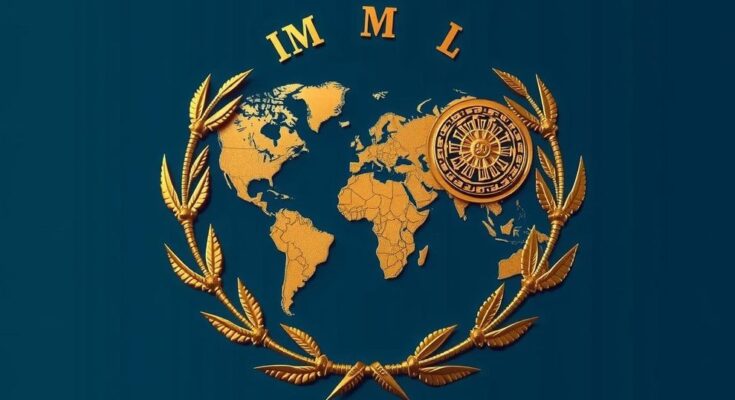The IMF is urged to sell 4% of its gold to help low-income countries affected by climate change. This action could generate $9.52 billion and expand the limited support offered by the Catastrophe Containment Relief Trust. Current high gold prices present a timely opportunity for this sale, which could significantly relieve debt pressures on struggling nations.
The International Monetary Fund (IMF) has been urged to sell 4% of its vast gold reserves to provide financial relief to low-income countries severely impacted by climate change. A report from the Boston University Global Development Centre highlights that while the IMF’s existing Catastrophe Containment Relief Trust (CCRT) offers assistance, it falls short due to limited funding and eligibility criteria. By liquidating a portion of its 90.5 million ounces of gold, the IMF could raise approximately $9.52 billion, potentially extending debt relief to 86 countries struggling with escalating repayments. Given the current high market prices for gold, this sale could successfully enhance the CCRT’s funding.
As climate financing takes center stage at the COP29 summit, the financial struggles of low-income countries in the face of climatic disasters have become increasingly pronounced. These nations have often sought support from the IMF, especially in light of the Covid-19 pandemic, which has exacerbated their existing vulnerabilities. Although the CCRT aims to mitigate these challenges, its reach and resources are insufficient, with only 30 countries covered and limited funding available. This scenario calls for innovative solutions, such as the proposition to monetize gold holdings.
In summary, the proposal for the IMF to sell a small percentage of its gold reserves represents a strategic option for addressing the pressing financial needs of climate-vulnerable nations. The anticipated revenues could substantially bolster the CCRT, allowing for debt relief without the imposition of stringent conditions. The urgency of this measure reflects the severe economic burdens that countries like Madagascar and Mozambique face, underscoring the necessity for immediate action to alleviate financial distress in the wake of climate-related adversities.
Original Source: www.mining.com




